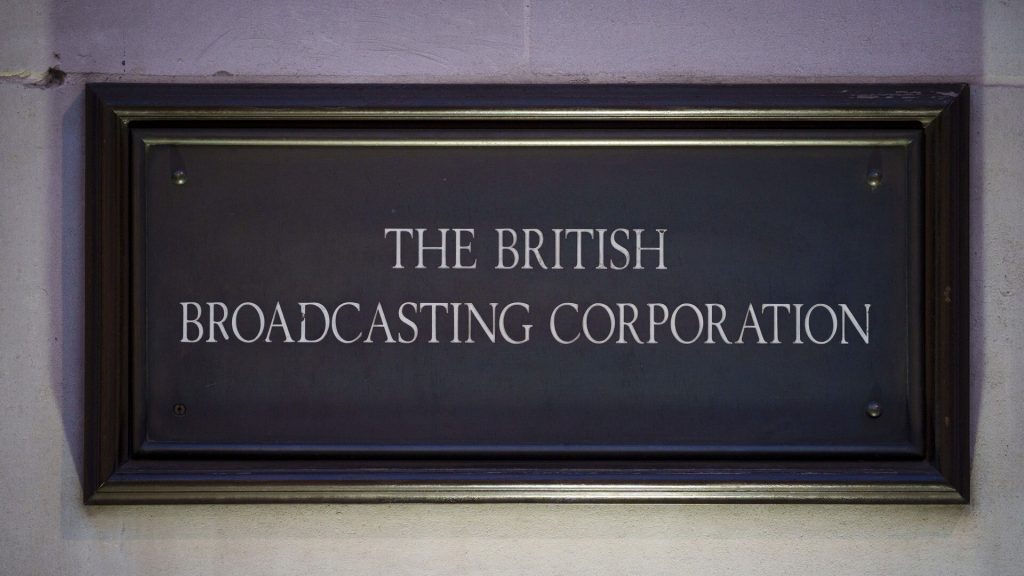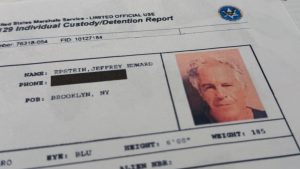BBC apologizes to Trump, but refuses demand for compensation

The BBC said Thursday it had apologized to President Donald Trump after he threatened to sue the network over an edited version of his speech prior to the U.S. Capitol riot in January 2021. But the British broadcaster rejected Trump’s demand for compensation, saying his threat of a defamation lawsuit was unwarranted.
Trump’s lawyers sent a letter to the BBC this week, demanding the BBC retract any “false, defamatory, disparaging, and inflammatory statements,” about Trump from an episode of its “Panorama” program from October 2024 or face a lawsuit seeking $1 billion in damages.
Trump’s legal team also requested a personal apology to the president on behalf of the network and gave the BBC a deadline of 5 p.m. ET Friday to comply with its demands. The letter accused the news outlet of causing Trump “overwhelming financial and reputational harm.”
‘Strongly disagree there is a basis for a defamation claim’
In a statement shared Thursday by the BBC, the network said it had sent a personal letter to the White House from its chair, Samir Shah, apologizing for the improper editing of the clip and emphasizing that the news outlet had “no plans” to rebroadcast it.
“While the BBC sincerely regrets the manner in which the video clip was edited, we strongly disagree there is a basis for a defamation claim,” a statement from the BBC read.
The clip in question
Trump’s defamation claims focus on a spliced edit of his speech before the Jan. 6, 2021, Capitol riot that was aired on the BBC’s “Panorama” in an episode titled “Trump: A Second Chance?” In one clip of the episode, Trump is heard saying “We’re going to walk down to the Capitol and I’ll be there with you, and we fight. We fight like hell.”
But the two sentences were spoken almost an hour apart, and the clip omitted Trump’s admonition to supporters “to peacefully and patriotically make your voices heard.”
The White House directed requests for comment about the BBC’s apology to Trump’s outside lawyer, Alejandro Brito. He has not publicly responded.
Trump’s legal challenge would face major obstacles
Legal experts say Trump would face an uphill battle if he chose to go forward with a defamation suit.
“Even if Trump could point to inaccuracies in the documentary, mere mistakes are not enough; he’d need evidence that the BBC, at least subjectively, doubted the truth of what it published,” Jonathan Peters, an associate dean at the University of Georgia’s journalism school, told The Washington Post.
Jeffrey Robbins, an attorney who has represented both media clients and public figures in defamation cases, told Straight Arrow News earlier this week that Trump would stand a better chance of prevailing if he sued the BBC in the United Kingdom rather than in the U.S.
“Trump is going to have meaningful legal advantages if he does institute a defamation lawsuit in the United Kingdom over this coverage,” Robbins said. “The law of defamation is ‘plaintiff-friendly’ in the U.K. relative to American defamation law.”
However, legal analysts told The New York Times that the president failed to file within the statute of limitations for Britain, which is 12 months from the original airing.
Latest legal threat comes amid whistleblower report
Trump’s legal threats come amid a whistleblower report by Michael Prescott, a former BBC editorial standards adviser, accusing the network of deceptive editing practices and biased coverage. The report was first obtained by The Telegraph.
The criticism prompted the resignations of the BBC’s director general, Tim Davie, and its top news executive, Deborah Turness, on Sunday, citing “mistakes” and “damage” to the brand.
BBC’s funding model requires it to remain unbiased
The controversies have also brought attention to the BBC’s funding through government-imposed licensing fees. As a stipulation for funding, the BBC must adhere to rules that its coverage remain unbiased.
“Everyone in the U.K., who has a TV has to pay a license fee. …And that’s the main source of its funding,” former BBC executive Richard Sambrook, who worked at the network for more than three decades, told SAN. “It’s viewed as public money, and [the] BBC is more accountable. It’s not like a private corporation where the owners will say, ‘Well, it’s our company, we’ll do what we want,’ and everybody in Britain sort of thinks the BBC is part of them and they own a slice of it so therefore the kind of accountability is that much higher.”
Sambrook said that while mistakes occur across news outlets, timely addressing such errors is key to maintaining a news organization’s credibility.
The post BBC apologizes to Trump, but refuses demand for compensation appeared first on Straight Arrow News.





